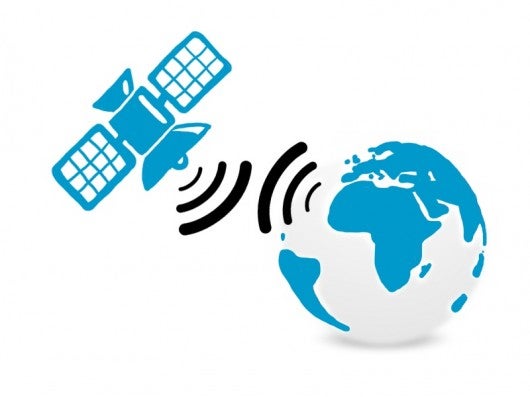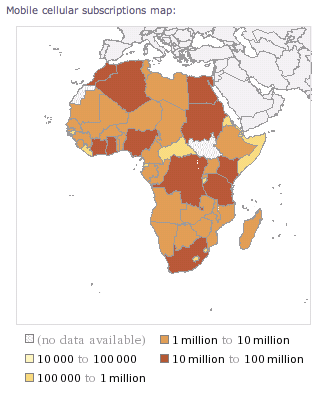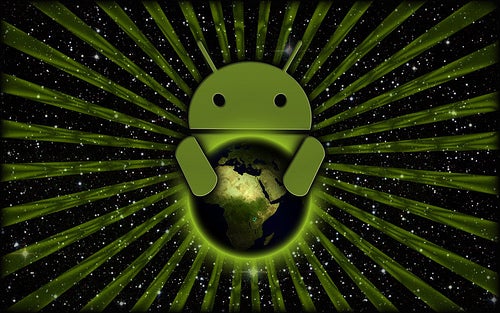A more Googley idea for what can be done with Motorola

Ever since Google bought Motorola, the Internet has been going mad. Everyone wants to use every little scrap of information as proof positive that Google is going to implode the entire Android ecosystem in order to get more profits from exclusivity with Motorola devices. Microsoft, Nokia and Acer have tried to fuel the fires in attempts to unsettle Google's hardware partners. Unfortunately, many of these stories are nothing more than hype and doomsaying, because it makes for better link bait. Not too many people have stopped to consider Google's decision history, company ethos, and business practices. We've already explained why Google won't use Motorola as the exclusive hardware manufacturer for Android, but suffice to say that Google wants multiple hardware partners in order to create competition, which ultimately pushes the entire Android ecosystem forward. However, that doesn't mean that Google shouldn't or won't use Motorola at all for Android devices. In fact, there's a huge potential for Google to use Motorola in a very Googley way, and it all has to do with lighting up unwired areas and bringing the world to the Internet.
Google's mission
First of all, let's get one thing straight: Google has never been a traditional company. We always want to assume that Google will make certain choices in order to increase profits, but that's not how Google has done business. That's how Apple does business. Apple is like a newly graduated MBA student: focused, and looking to maximize revenue. Luckily for us, that means we get beautiful devices that fit the needs of many users, and meticulously thought out integrated ecosystem filled with curated content, even if there is a bit of an Apple-tax and draconian control involved. On the other hand, Google is more like a hippy who gets stoned and wants to change the world: the ideas are grand, but the execution can be muddled, and distractions can get in the way. This means we can get great products that can disrupt entire industries, often because they are given away for free. They may not be the most focused efforts and the lack of control leads to a shared commune experience, but the free-for-all can mean that there's a lot of crap lying around. However, all of the closing down of Google projects seems to show that Larry Page wants to limit the distractions, so we're hoping that helps.
If Google were in this purely for profit, it wouldn't have been giving away Android all these years, there would have been an exclusive partner a long time ago. Google would have tighter control over Android licensees, and app submissions. If Google were in this purely for profit, it would be licensing Google Maps and other services which are given away for free. In short, if Google were as focused on profits as much as the GooMoto doomsayers would have you believe, Google would be doing business more like Apple. The thing is that Larry Page and Sergey Brin honestly believe that they can change the world for the better, and they primarily want to do this is in 3 ways:
-
Organizing the world's information. This was mission number one by Google, and while search may not be perfect, it's gone a long way to making the pulsating mass of the Internet more easily understood. This organizational philosophy has grown to include: mapping the world, curating news, photos, videos, shopping, and much more.

- Making data universally accessible. This is applies to both Google's open source push, and Google Takeout. Many will argue that Google (and particularly Android) isn't as open as advertised, but once the innovation is done by Google, the code is free for anyone. And, if anything proves the openness of the system, it's the fragmentation and forks, like those planned by Amazon, or Baidu. There is even evidence to suggest open-source is a better way forward than the dreadful patent process we have now, because unlike the overly litigious patent system, open-source, even in its limited Google form, actually spurs innovation. Google has also pushed the Data Liberation Front through Google Takeout, so only you control your data and can take it out of any cloud service at any time. And, it's also why Google pushes HTML5, which can be used on any platform with a capable browser (sorry IE).
- Bringing the world to the Internet. This is why Android is free, because it leads to cheaper devices and more people on the Internet. And this last idea is the main drive behind our suggestion for the future of Motorola. Of course, because Google is still a business, once on the Internet, most roads lead to Google ads.
The next 3 billion
As huge as the Internet has become, and as integral as it is for business, society, and communication, over half of the world still doesn't have access to the Internet. Google has already invested in the company O3b (the Other 3 billion)1 which plans to bring affordable high-speed Internet to emerging markets via satellite. O3b wrapped its initial funding last year, and plans to have the first satellites up by 2013. However, affordable Internet isn't the real problem, the bigger problem is the prohibitive entry costs for hardware like computers or even modern mobile phones. The key to these markets will be in creating cell phones that have an unlocked cost of $50 or less.

Basic mobile phones can still have an enormous impact on emerging nations because of that feature we may often forget as we use our devices more and more as mini-computers: they are phones. A farmer, fisherman, or hunter can generate more business by being able to call or text a reseller in order to more quickly initiate sales or trades. This efficiency not only boosts revenue for tradesmen, but it lowers the market price for products as well. It has even been estimated that an additional 10 mobile phones per 100 people in a population can increase the entire nation's GDP by 0.5% annually.4 Many of these phones have been made by Nokia, which is one of the first major companies to push sub-$50 feature phones for emerging markets.5 But, mere communication and feature phones wouldn't be enough for Google, and they certainly won't be enough as emerging markets continue to grow and interactions, both business and personal, must become more complex. Let's imagine ultra-low-cost or even free (because this is Google after all) Android devices made by Motorola.
Android Earth
Google knows the value in emerging markets like Africa, and has already begun planting the seeds for this plan by sponsoring Android Developer Challenges in sub-Saharan Africa (the first winner is due to be announced in just a few days actually, on September 12th.)6 Google has been pushing Maps in Africa with 45 countries open to Map Maker in order to crowd-source the creation of maps, and full Google Maps available in many countries.7 Google has even started a seed fund called Umbono, based in Cape Town, South Africa, which offers $25,000 to $50,000 in seed capital for businesses as well as mentoring for strategy and planning.8 Even just this morning (September 12), Google announced a program to help aid Kenyan businesses in getting online by providing free URLs, free online marketing and free education tools.9
But, as we mentioned before, it's the cost of hardware that's the problem, and hardware has always been outside of Google's grasp, until now. Now, Google can use Motorola and Android to push ultra-low-cost devices into emerging markets. Then, in addition to the communications benefits, there will also be the full power of the Internet for collaboration, research, and most importantly extending the reach of commerce. Right now, most of this is done via SMS, and there are powerful tools for banking via SMS, even a new startup which allows users to invest unused pre-paid air-time into stocks or funds.10 Google is already in this area, having released Google SMS in Uganda, allowing users to access news, health and agriculture tips, weather and more, and Google Trader11 which acts as a virtual marketplace to speed up those same transactions we mentioned earlier. Google has partnered with France's Orange to bring SMS chat to Senegal, Uganda, and Kenya.12

Of course, Android would need a some major work, most notably it needs to become a multi-user system. Unless Google subsidized the phones and offered them for free, which may not be possible, there would need to be separate user accounts for Android devices, because often in developing nations, mobile devices are shared between a number of users. This is mostly due to the overall costs of devices, so the phenomenon would be lessened with ultra-low-cost, or free devices entering the market, but even then emerging markets will be more likely to have multiple users per device, rather than the multiple device per user model that we enjoy. Currently, you can log-in to multiple accounts on an Android device, but if you do, all of the information gets merged together, and it isn't a separate environment for each user. Separate environments obviously would benefit users, but it also gives more targeted information to Google, which can be used to improve ads, search results, and many other services. Google would also need to work hard to localize apps for various languages. While French is widely spoken in sub-Saharan Africa, and English is prevalent as well, where possible localization would be needed.
For its part, Motorola would have a pretty difficult task as well in creating a phone which would be under $50 unlocked. In a perfect world, any device would be solar-powered and rugged. But, as far as keeping the costs down, there have been other companies that have created phones which would fit the model, most notably Mi Fone which offers a number of models of sub-$80 phones. These usually feature screens around 3", no more than about a 600 MHz single-core CPU. The key difference to this plan to this would be in Google's ability to subsidize the phones, and possibly bringing the price down to nothing.
Conclusion

Google can certainly use Motorola for its patent portfolio, and for its set-top boxes, but must be very careful not to push away hardware partners for Android. That said, Motorola has a record of creating great, cheap handsets in addition to the smartphone powerhouses that we know and love. Google's main business is to get more people on the Internet, and the biggest market there is in developing nations, where many can't afford the initial costs for hardware to access the Internet. So, we want to see some GooMoto devices made to solve this problem. The creation of these devices shouldn't upset other Android hardware manufacturers, because there would be no direct competition. Google would have to subsidize costs, meaning it wouldn't be making any profit on the sale or distribution of these devices, and so shouldn't cause a problem with the Android ecosystem. And, if it proves to be valuable, Google could easily partner with Samsung or HTC to add more devices to the plan.
That's a grand hippy idea. That's a Google idea. That's a Googley way to use hardware manufacturing capabilities. It may not be initially profitable, and would be expensive to keep the cost of devices down, but if any company could make it work, it would be Google.
sources: (1) O3b, (2) WolframAlpha, (3) Reuter, (4) Invested Development, (5) PCWorld, (6) Zed Fibre, (7) IT News Africa, (8) Umbono, (9) The Next Web, (10) ReadWriteWeb, (11) Google Mobile Blog, (12) Reuters













Things that are NOT allowed: